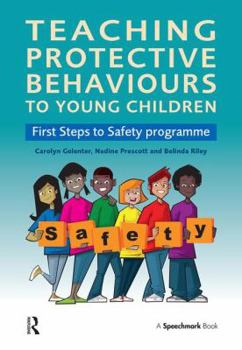Teaching Protective Behaviours to Young Children: First Steps to Safety Programme
This programme aims to provide children aged 4-7 years with awareness and strategies for keeping safe. Although it may be difficult to accept, children and young people from any community, including those with disabilities, can be put at risk of harm, abused or hurt, regardless of their age, gender, religion or ethnicity. All children have the right to be safeguarded from abuse or neglect so they have the opportunity to reach their potential and be successful adults.
Protective behaviours teaches children to develop an awareness of personal safety; helps them to identify and express their feelings; make choices and solve problems. First Steps to Safety has taken the core protective behaviour principles and created a teaching framework with overarching aims, with supporting lesson plans, resources and activities, in a 10 week programme that can be picked up and used by anyone in school wanting to empower children and young people of any age and any capability to develop personal safety.
The information and strategies provided to children are generic and applicable across a range of situations that may arise, for example bullying, internet safety, being harmed, feeling sad or feeling unsafe. Sessions include:
my body parts showing my feelings my body, thoughts and feelings all go together feeling safe behaviour choices to empower children to feel safe and know they have a right to fee safe to give children the confidence and ability to assertively manage their own safety to teach children the skills to take responsibility for their own bodies, thoughts, feelings and behaviour to enable children with a range of communication abilities to ask for help for children to have awareness of their body, thoughts, feelings and behaviour have a vocabulary to express how their thoughts and feelings affect their bodies know the early warning signs for feeling unsafe know they can make different behaviour choices based on feelings know who good people are to go to for help and how to ask for help.




